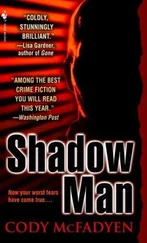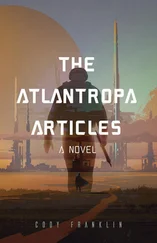“All four?”
“That’s right. The same unknown was present in each case.”
I stare at James and see my own confusion reflected back at me.
What the hell?
I throw up my hands. “Fine, then, let’s treat it like a gift. Widen the search. Interpol, any databases we can think of that might help. I heard whispers that the NSA has been building a ‘secret’ database of their own. Covert operatives in various countries.”
“Shot in the dark.”
Interpol’s database is so small that it generally returns an average of eighty percent in negative results, and the NSA tends to be pretty condescending to us, post 9/11 calls for cooperation notwithstanding.
“Still, try.”
“Fine,” Callie sniffs. “But it may take some time. I don’t have any friends there.”
“Imagine that,” James sneers.
“Speaking of the crazy factor,” I say, cutting off Callie’s planned retort, “James, let’s do a property search in Los Angeles, Portland, and Las Vegas. Confine it to commercial properties.”
“What am I looking for?”
“Anything with Dali in the name.”
James taps his upper lip with a finger, thoughtful. “I’ll do some research on Salvador Dali as well and look for any permutations. Names of paintings, things like that.” He frowns. “It’s going to take some time, and it’s likely to be pretty inexact. Not all records are computerized. The ones that are aren’t necessarily searchable. We might find nothing.”
“Or we might find something.”
The office door opens and AD Jones strides in.
“Upstairs, Smoky,” he says. “Now.”
CHAPTER THIRTY-ONE

“Am I in trouble, sir?” I ask as we ride up in the elevator.
He smiles. “Nah. The director wants to talk to you, and he’s on a time crunch.”
“He’s upstairs?”
“In my office as we speak.”
We exit the elevator and walk past Shirley into the AD’s office. Director Rathbun is standing as we enter, and he walks over to me and shakes my hand. “Sorry to pull you away, Smoky. I understand you’re handling a difficult case right now.”
“Yes, sir.”
“I’ll keep it short. It’s not official, but I have what I’d call basic backroom approval on the establishment of the strike team. From the president himself.”
“Wow,” I manage.
“You’re going to have to get better than that before I put you in front of the press,” he jokes.
“Or we could just skip that part, sir. I don’t like talking to reporters.”
“And most of the time you won’t have to. I promise. In the beginning, though, once everything’s done and the funding’s approved, I’ll need you to do a little bit of PR work. That’s a part of the deal. There will be senators and congresspersons who want to be seen with you. The president too.”
“Really?”
“Of course. My solution gives them an out, Smoky. At some point, an enterprising reporter will find out that funding and personnel have been cut for FBI nonterror activities nationwide. That’s going to make a lot of people uncomfortable.”
“Rightly so,” I say.
“The strike team becomes the story the president and others get to tell to soothe that discomfort. We’re not dismantling our NCAVC activities, you see, we’re just changing them.”
“Can I ask you a question, Director?”
“Anything you want.”
“Off the record, what’s your opinion about all this ‘dismantling?’”
“I told you before, I disapprove. This is my effort to save what I can.”
“Why do you disapprove?”
Anyone can tell you they believe in a principle. The test is: Can they defend it? It’s a serious question. I want to see if he can give me a serious answer.
“Some people are convinced that increases in technology will take up the slack. They believe that DNA and fingerprints and all the rest are going to make profiling not obsolete but certainly less important. They feel that local police can provide the needed feet on the ground, and that our role can become both more centralized and more automated. I think this is a grave error in judgment.”
“Why?” I press.
“For the same reasons you do, Agent Barrett.” A faint smile. “I may be just a ‘suit,’ but I’ve kept my finger on the pulse. I’m aware of the work you and your team, and other teams, do. Forensics is and will always be invaluable. But there will never be a replacement for a group of people who are trained and experienced in understanding serial offenders. Unfortunately, what I think, and how I feel, is falling on deafer and deafer ears.” He spreads his hands in a gesture of futility. “What can I say? It’s inevitable. A storm is coming; I’m just trying to save what I can.”
I search the director’s eyes for any hint of a lie. I see nothing. Just a low-grade exhaustion at playing the politician’s game, a brief vulnerability that disappears a moment later with a squaring of his shoulders and a flash of the trademark smile.
“Did I answer your question satisfactorily, Agent Barrett?”
“Yes, sir. Thanks.”
“How long ’til we know something?” AD Jones asks the director. “One month. Six weeks on the outside.”
“So fast?” I marvel.
“Washington has a short memory. Right now the president’s excited about this. Best to seize the moment while it’s ours.” His gaze goes serious. “Now, I need to know, before I really let the dogs loose: Are there any stumbling blocks I should be aware of? Anyone not on board? Anything at all?”
I fight to keep my gaze from sliding over to AD Jones. The alien in my belly stirs, but not really; I know that’s a fantasy. He or she is still just a bare collection of cells. I consider Alan, both his age and his misgivings.
“No, sir,” I say, smiling as I lie. “I think we’re good to go.”
“Glad to hear it.” He checks his watch and nods to himself. “Good timing, then. I have to run. I’ll let you both know as things develop.” He shakes our hands and heads out the door.
“You’re getting better at lying,” AD Jones says, when he’s gone.
“Lying and equivocation aren’t the same thing,” I retort. “Ask any lawyer.”
“It’s not a criticism. That’s a skill you’ll need to develop where you’re going. In the meantime, we’re all still here, so bring me up to date on this case.”
I tell him everything we know. He interjects a few questions but is largely silent.
“Why do you think he let Heather Hollister walk without giving her a lobotomy?” he asks when I’m finished.
“I don’t know. Maybe she personalized herself to him in some way. Maybe she looks like his mother. I’m not sure.”
“What’s your gut say?”
This is his way. He asks for our instincts, because his own got him where he is today. AD Jones trusts his people.
“Every sense I have of this guy so far tells me that everything he does is deliberate. His actions are driven by reason based on self-preservation, not emotion. Heather Hollister is a piece that doesn’t fit, but only because we don’t know how she fits yet.”
“And the fingerprints?”
“Again, I don’t know. If that’s deliberate, I can’t imagine why. It could be something as simple as him thinking the plastic on the body bags wouldn’t retain a fingerprint.”
He stares off, and I know he’s calculating all the facts I’ve given him. “Okay,” he finally says. “Sounds like you’re on the right track. I agree, property records and the undercover op are the best paths you have at the moment. Keep me briefed.”
Читать дальше












